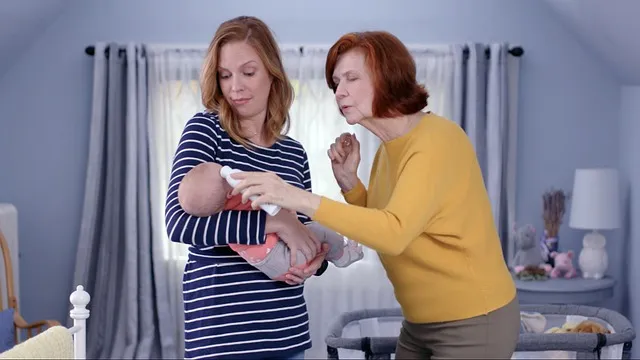In infants, the thermoregulation center has not yet been formed, so the body temperature may be slightly elevated. Immediately after birth, it is 37.5-38 °C, and in a few hours it decreases by 1.5-2 °C. On the fifth or sixth day of life, the body temperature of the newborn stabilizes at about 37 ° C.
Features of temperature in infants that you should know about:
- After eating, bathing, massage and gymnastics, the baby’s body temperature is elevated, so if there is a need to measure it, then this should be done in 15-20 minutes. after feeding and activities.
- 37.2 °C is normal for babies up to 6 months, in some babies it may even be 37.5 °C, but only if there are no signs of disease and if the baby has such a temperature daily.
- With the disease in an infant, the temperature rises very quickly due to intensive metabolic processes. 38 °C can turn into 39.5 °C in half an hour.
- If the temperature of the infant is above 38 °C, then febrile convulsions often occur, so you need to bring down the temperature when it rises above 37.5 °C.
Why does a baby’s temperature rise?
Babies overheat pretty quickly. This, again, is due to an unformed thermoregulation center. Therefore, you should not put on the baby excessively, and if the temperature is slightly elevated without other signs of disease, it is worth removing one layer of clothing.
An increase in the body temperature of babies also provoke intestinal infections, stomatitis, viruses and other diseases, teething, allergies. Also, fever can be an infant’s response to vaccinations, stress, and have neurological causes.
At a slightly elevated temperature, you should carefully monitor the child – if it is caused by a disease, the baby very soon becomes sluggish, tearful and other symptoms appear.
How and how to measure the temperature in an infant?
In the smallest children, the temperature can be measured in the inguinal cavity, in the rectum (rectally) or using a special thermometer-nipple in the oral cavity (orally).
The most accurate data shows the measurements in the inguinal fold. When measuring temperature orally, you should know that the rate is higher by half a degree, and when rectal measurement – by a degree. Today, ear infrared thermometers are also popular. They measure the temperature in a few minutes, have a small error and are absolutely safe, but also quite expensive.
When and how to bring down the temperature of a baby?
It is worth starting to give the child antipyretic drugs when the temperature is above 37.5 °C. If this happens, then you should also definitely consult a doctor.
There is an opinion that high temperature is a sign of the body producing antibodies to the disease, so it is not necessary to knock it down. In fact, there is no scientific evidence for this and the high temperature depletes the baby.
Due to the elevated temperature, the baby’s body is dehydrated, so first of all you need to give the child a drink. Offer your child water, baby tea, dried fruit compote or raisin decoction every half hour, but do not try to make you drink – let the baby drink as much as he needs.
Also, at elevated temperatures, the infant should be provided with freshness and coolness in the room – do not heat the air more than 20 °C. If it seems to you that the child is cold – it is better to wear it warmer, and leave the air cool.
There are several basic general recommendations for choosing antipyretic drugs for children, however, it is best to consult a doctor for this.
- The first thing you should know is that aspirin is contraindicated in children under 12 years old – it can give serious complications, so drugs with aspirin should not be taken to babies.
- Usually, the active ingredients in drugs to lower the temperature in infants are paracetamol and ibuprofen.
- To bring down the temperature in infants, you can use both syrup and rectal suppositories.
- It is necessary to use antipyretic drugs only when the child’s temperature has risen, and not to give the baby on schedule
- Medicines based on paracetamol and ibuprom should not be given to babies more than 4 times a day and for longer than 3 days in a row without a doctor’s examination.
In the first-aid kit of young parents there must be a thermometer, which is convenient to measure the temperature of the baby. Choose according to your financial capabilities, because such thermometers are very different. Nevertheless, you should not buy the cheapest option just because it is the cheapest – the thermometer for babies should be safe and as accurate as possible.

